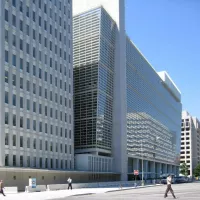Kenya, officially the Republic of Kenya, is an East African country. As of mid-2024, its estimated population exceeds 52.4 million, making it the 27th most populous globally and 7th in Africa. Nairobi is the capital and largest city, while Mombasa is the second-largest and a major port. Kenya shares borders with South Sudan, Ethiopia, Somalia, the Indian Ocean, Tanzania, Lake Victoria, and Uganda.
Mentioned in this timeline

Basketball is a team sport played on a rectangular court...

Barack Obama the th U S President - was the...
Germany officially the Federal Republic of Germany is a nation...
China officially the People's Republic of China is an East...
Africa is the second-largest and second-most populous continent comprising of...

The World Bank is an international financial institution offering loans...
Trending

54 minutes ago Lakers Seek to Unlock Ayton's Greatness While Hayes Shines, Exposing Unwanted Truth.

54 minutes ago Jrue Holiday NBA DFS picks, lineups, and player prop bets for February 24.

54 minutes ago Julius Randle's Injury Update: Chris Finch Comments, Randle Scores 18 in Loss
55 minutes ago Jaden McDaniels excels as scorer, boosting Timberwolves with underrated skills this year.

55 minutes ago NBA Southeast Notes Discuss Trades, Desmond Bane's Performance, and Wendell Carter Jr.

2 hours ago Space Force Upgrades, Battle Management, and Role in Raids Spark Resource Push
Popular

Jesse Jackson is an American civil rights activist politician and...

Susan Rice is an American diplomat and public official prominent...

Barack Obama the th U S President - was the...

Michael Joseph Jackson the King of Pop was a highly...

Bernie Sanders is a prominent American politician currently serving as...

XXXTentacion born Jahseh Dwayne Ricardo Onfroy was a controversial yet...